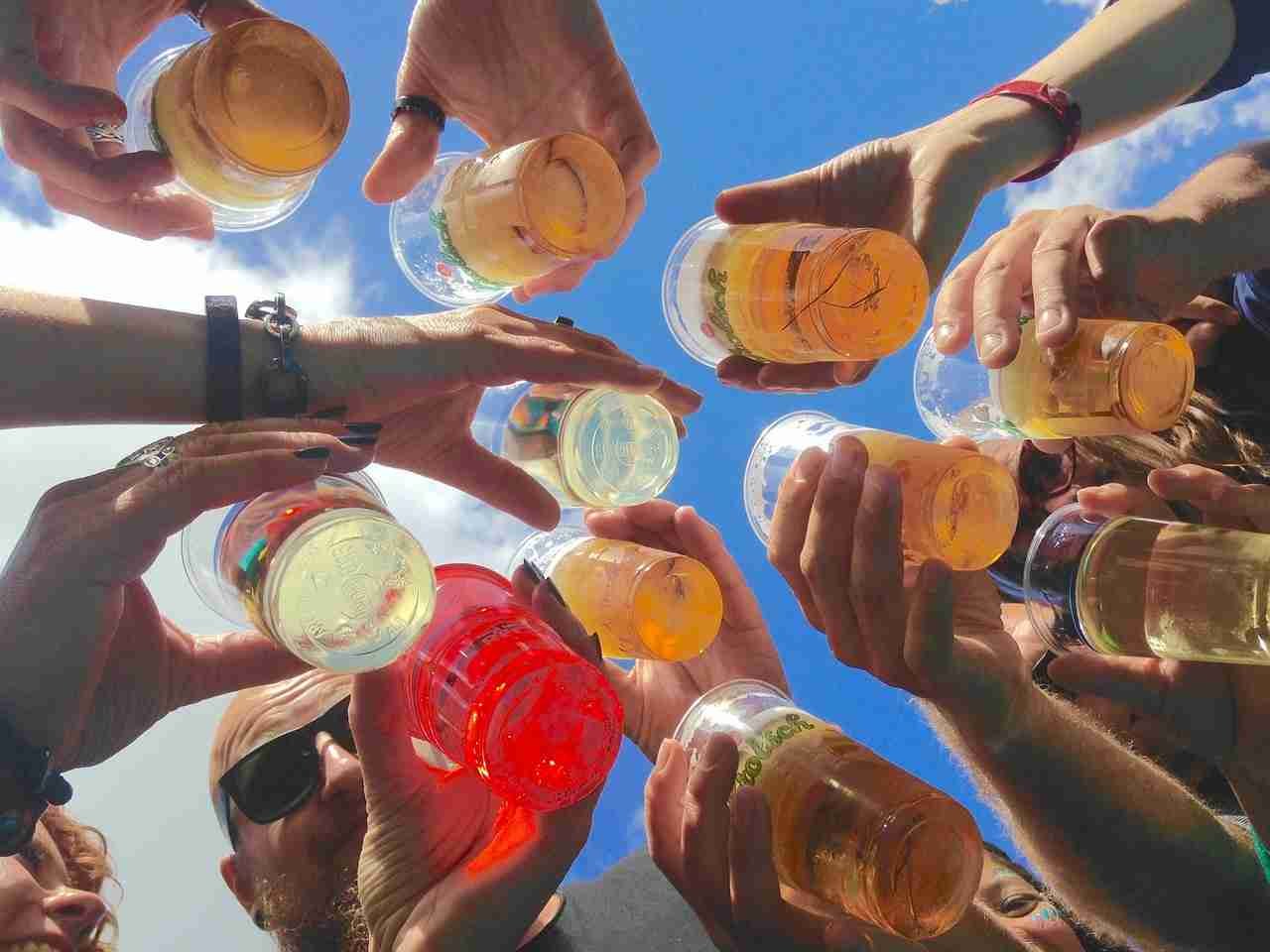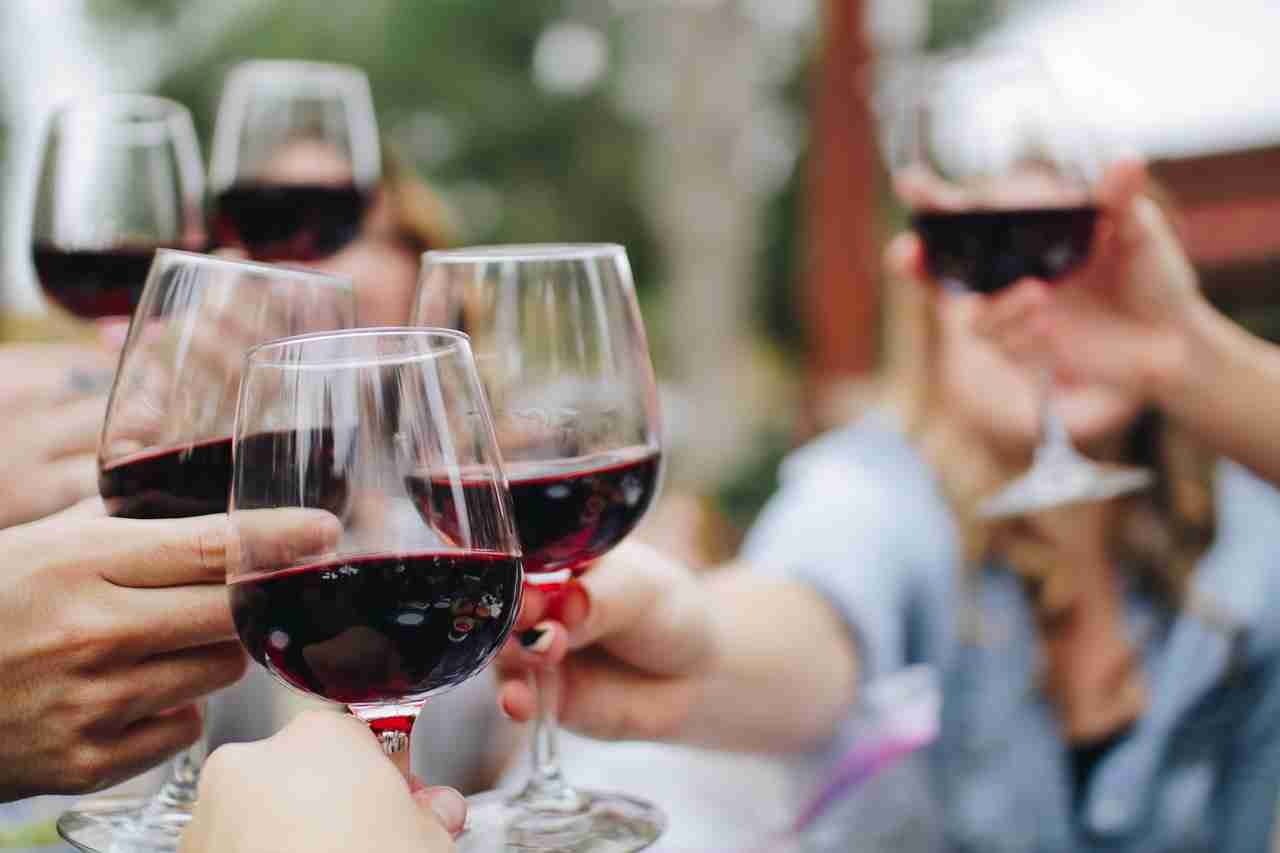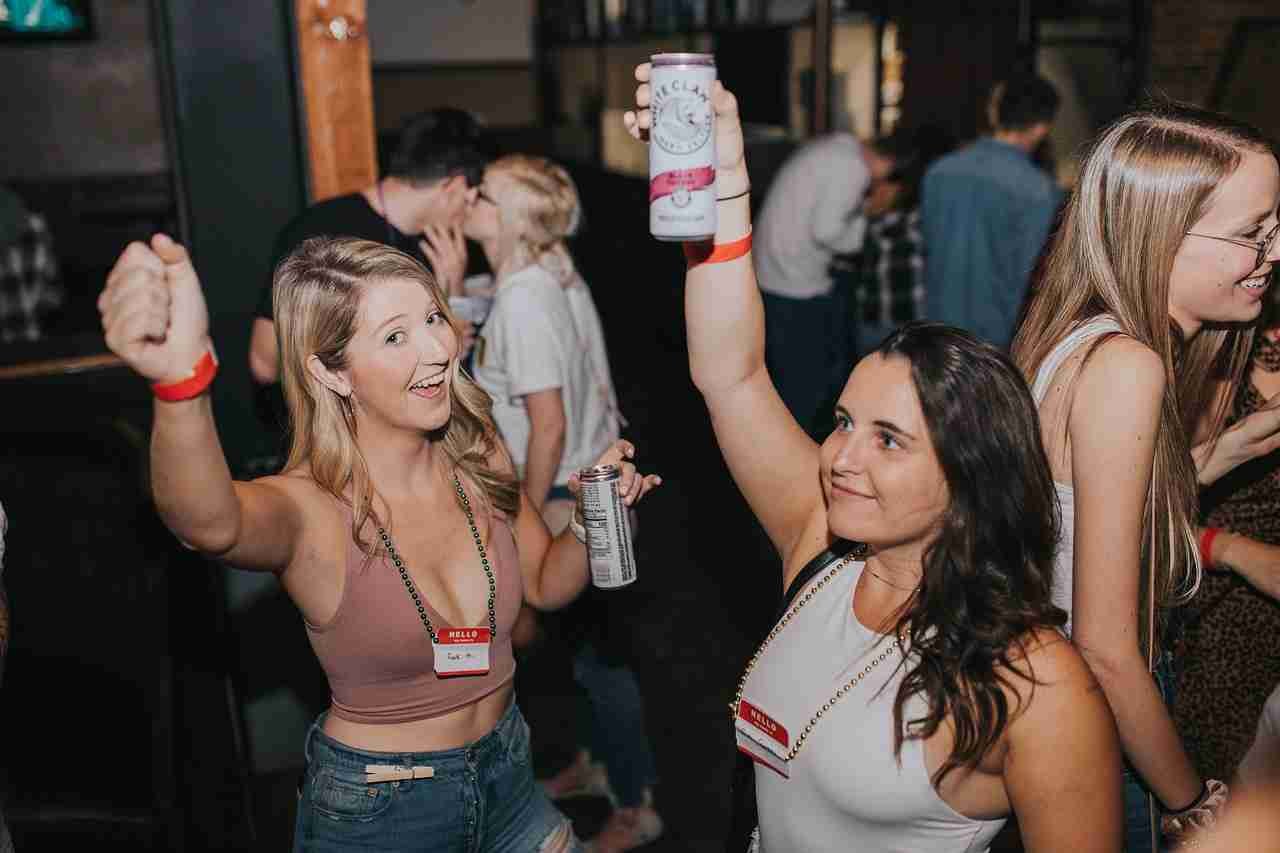Ah, the dreaded hangover.
We have all been there—waking up after a night of revelry with a pounding headache, queasy stomach and a general sense of regret.
While one the best hangover cures is to drink in moderation or not at all, sometimes the allure of a good time can lead us astray.
Let’s dive into some common myths and hangover cures, separating fact from fiction and exploring what might actually help alleviate those unpleasant symptoms.

Ineffective Hangover Cures
Myth 1: Hair of the Dog
The “hair of the dog” method, it involves drinking more alcohol and is one of popular hangover cures, is ineffective because it only provides temporary relief without addressing the underlying causes of a hangover.
When you consume more alcohol, it can temporarily alleviate withdrawal symptoms by numbing the effects of the previous night’s drinking. However, this doesn’t help your body recover; instead, it delays the detoxification process and can lead to further dehydration and nutrient depletion.
Ultimately, the best way to recover from a hangover is to allow your body to detoxify, rehydrate, and replenish lost nutrients. Drinking more alcohol only prolongs the recovery process and can potentially lead to a cycle of dependence.
It is better to focus on hydration, rest, and consuming a balanced meal to support your body’s natural recovery mechanisms.
Myth 2: Coffee Will Sober You Up
Drinking coffee is often thought to be a quick fix for hangovers, but it is actually ineffective for several reasons.
While caffeine might help you feel more alert, it doesn’t address the root causes of a hangover and certainly is far for the hangover cures that really help. In fact, coffee is a diuretic, which means it can further dehydrate you, potentially worsening your symptoms. Dehydration is a major factor in hangover discomfort, so adding more diuretics to the mix isn’t helpful.
Moreover, coffee doesn’t speed up the elimination of alcohol from your system. Your liver needs time to process and detoxify the alcohol, and caffeine doesn’t accelerate this process. Instead, it can lead to increased heart rate and jitteriness, which might make you feel worse overall.
Focusing on hydration with water or electrolyte-rich drinks, getting plenty of rest, and eating a balanced meal are more effective ways to alleviate hangover symptoms.
Myth 3: Greasy Food is the Answer
A good kebab after a night of drinking is delicious, but again an ineffective hangover cures.
While consuming a greasy meal before drinking can slow the absorption of alcohol, it doesn’t prevent a hangover. Once you are already experiencing hangover symptoms, greasy food won’t do much to alleviate them. In fact, it can sometimes make you feel worse by causing indigestion or exacerbating nausea.
The key to recovering from a hangover is to focus on hydration, rest, and replenishing lost nutrients.
Eating a balanced meal with carbohydrates, proteins, and healthy fats can help stabilize your blood sugar levels and provide essential nutrients, but greasy food alone won’t cure a hangover.
Myth 4: Hangovers Get Worse with Age
The myth that hangovers get worse with age is not entirely accurate.
While aging can affect how the body processes alcohol, factors like hydration, sleep quality and overall health play significant roles in hangover severity. As people age, they might drink less frequently, leading to a lower tolerance for alcohol and a perception of more severe hangovers. Additionally, medications and health conditions common with age can interact with alcohol and exacerbate symptoms.
However, some studies suggest that hangover severity might actually decrease with age due to more responsible drinking habits and increased awareness of personal limits.
Therefore, hangover experiences vary widely and are not solely determined by age.
Myth 5: Drinking Water Before Bed Prevents Hangovers
Drinking water before going to bed is a good step, but it is not a complete solution for preventing hangovers.
While it helps to counteract some of the dehydration caused by alcohol, it doesn’t address all the factors that contribute to hangovers. Alcohol disrupts your sleep cycle, depletes essential nutrients, and causes inflammation, which water alone can’t fix.
To effectively prevent hangovers, it is important to stay hydrated throughout the night, eat a balanced meal and get plenty of rest.

Effective Hangover Cures
Now that we have debunked some common myths, let’s explore remedies and hangover cures that might actually help alleviate your symptoms.
Hydration
Hydration is the most crucial of hangover cures because alcohol is a diuretic, which means it increases urine production and leads to dehydration.
When you are dehydrated, your body loses essential fluids and electrolytes, which can cause symptoms like headaches, dizziness, and fatigue. Replenishing these lost fluids helps to restore your body’s balance, improve circulation, and support the detoxification process.
Drinking water or electrolyte-rich beverages can help mitigate these symptoms and speed up your recovery.
Sleep
Sleep is also crucial in hangover cures because it allows your body to recover and repair itself.
Alcohol can disrupt your sleep cycle, leading to poor-quality rest and leaving you feeling even more fatigued the next day. Getting enough sleep helps your body process and eliminate the alcohol, reduces inflammation, and restores your energy levels.
Additionally, sleep can help alleviate symptoms like headaches and irritability, making it an essential part of hangover recovery.
Balanced Meals
A balanced meal is important for curing hangovers because it helps stabilize your blood sugar levels, which can be disrupted by alcohol consumption.
When you drink, your body prioritizes metabolizing alcohol over other nutrients, leading to a drop in blood sugar. Eating a meal rich in carbohydrates, proteins, and healthy fats can provide the necessary nutrients to restore your energy levels and support your body’s recovery processes.
Additionally, foods high in vitamins and minerals, such as fruits and vegetables, can help replenish the nutrients lost during drinking and aid in detoxification.
Pain Relievers
Painkillers can alleviate hangover symptoms because they help reduce the discomfort caused by headaches and muscle aches, which are common after a night of drinking.
Over-the-counter pain relievers like ibuprofen or aspirin can provide relief by reducing inflammation and blocking pain signals. However, it is important to avoid acetaminophen (Tylenol) as it can be harsh on your liver, especially when combined with alcohol.
Using painkillers responsibly can make the recovery process more bearable and help you get back on your feet.
Ginger
One of the hangover cures that is often overlooked.
Ginger is important for curing hangovers because it has natural anti-nausea properties that can help soothe an upset stomach, a common symptom of hangovers.
It also has anti-inflammatory and antioxidant effects that can help reduce inflammation and oxidative stress caused by alcohol consumption.
Consuming ginger in various forms, such as ginger tea, ginger ale or even raw ginger slices, can provide relief from nausea and help you feel better faster.
Vitamin B and C
Vitamin B and C are important hangover cures because they play crucial roles in your body’s recovery process. Alcohol consumption can deplete these vitamins, which are essential for various bodily functions.
Vitamin B helps in metabolizing alcohol and replenishing energy levels. It supports the nervous system and helps reduce fatigue and irritability, common symptoms of hangovers. Specifically, B vitamins like B1 (thiamine), B6, and B12 are vital for converting food into energy and maintaining healthy brain function.
Vitamin C is an antioxidant that helps combat oxidative stress caused by alcohol consumption. It supports the immune system and aids in detoxifying the liver, which is crucial for processing and eliminating alcohol from your body.
Additionally, vitamin C can help reduce inflammation and support overall recovery.
Light Exercise
Light exercise can be beneficial for curing hangovers because it helps boost your mood and increase circulation, which can aid in the recovery process.
When you engage in light physical activity, your body releases endorphins, which are natural mood lifters. This can help counteract the fatigue and irritability often associated with hangovers. Additionally, exercise can help increase blood flow, which may help your body metabolize and eliminate the alcohol more efficiently.
A gentle walk or some stretching can be particularly effective in making you feel better without overexerting yourself.

Prevention Tips
Of course, one of the best hangover cures is to prevent it in the first place.
Here are some tips to help you enjoy a night out without the next-day regret and search for effective hangover cures:
Pace Yourself
Drink slowly and avoid binge drinking.
Sipping water between alcoholic beverages can help you stay hydrated and reduce overall alcohol consumption.
Eat Before and During Drinking
Consuming a balanced meal before drinking and snacking throughout the night can help slow the absorption of alcohol.
Choose Your Drinks Wisely
Clear spirits like vodka and gin tend to cause fewer hangover symptoms compared to darker liquors like whiskey and rum, which contain more congeners (byproducts of fermentation).
Know Your Limits
Listen to your body and know when to stop. It is better to call it a night early than to suffer the consequences the next day.
Hangovers are an unfortunate side effect of overindulgence, but knowing the myths and effective hangover cures can help you manage them more effectively. While there is no magic cure, staying hydrated, getting plenty of rest, and nourishing your body with healthy foods can make a significant difference. And remember, moderation is key to enjoying a good time without the dreaded hangover.
Have you tried any of these hangover cures before?